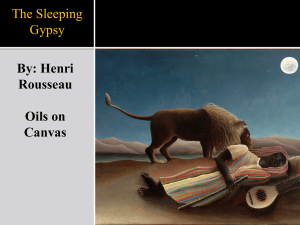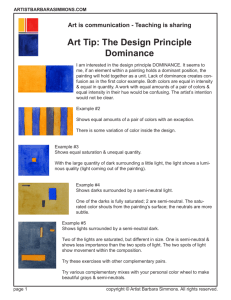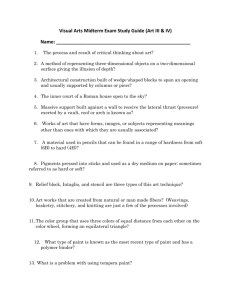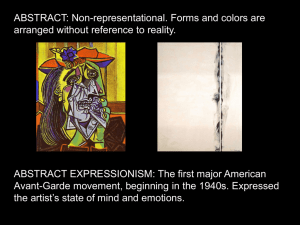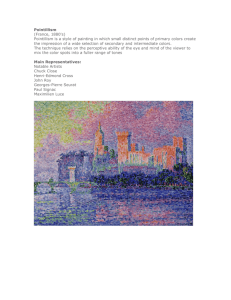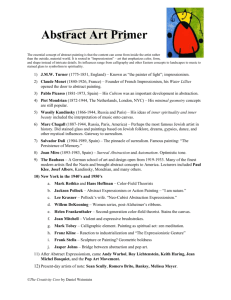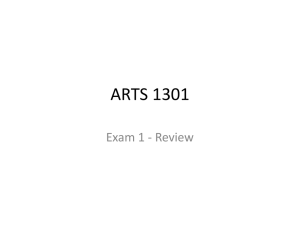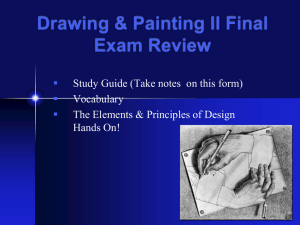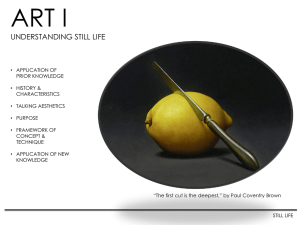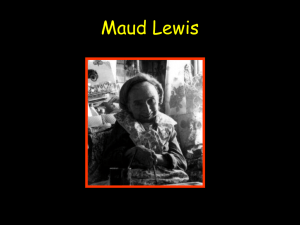Art History PowerPoint Project Artist List
advertisement
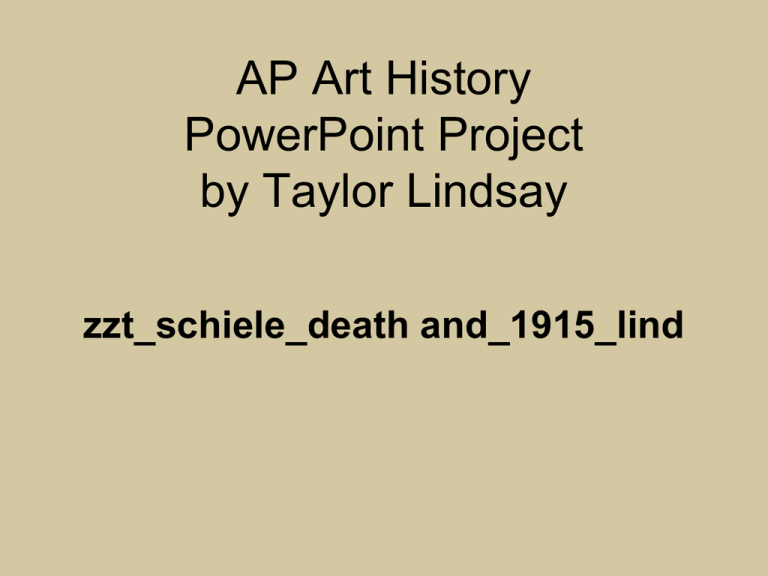
AP Art History PowerPoint Project by Taylor Lindsay zzt_schiele_death and_1915_lind 100 WELL KNOWN WORKS OF ART Schiele, Death and the Maiden Interpreted Using The Feldman Model of Formal Analysis Feldman’s Model of Art Criticism From the work of Edmund Burke Feldman, During the late 1960’s and early 70’s 1. DescriptionList the visual qualities of the work that are obvious and immediate. “What do you see in the artwork”? Include content and subject matter in representational worksInclude abstract elements in nonrepresentational pieces. 2. AnalysisFocus on the formal aspects of elements of art, principles of design. “How does the artist create a center of interest? How does the use of color impact the painting?” 3. InterpretationPropose ideas for possible meaning based on evidence. “What was the artist trying to communicate”? 4. JudgmentDiscuss the overall strengths/success/merit of the work. How and why has this work achieved cultural value? Egon Schiele Death and the Maiden 1915-1916 Expressionism Oil on canvas (59.3 × 70.9 in) 1.DESCRIPTION a. Painting b. Oil on canvas c. (59.3 × 70.9 in) d. There are no straight lines, the shapes are deformed and contoured, the texture in the painting looks rough, and the space looks unrealistic. e. The axis is vertical because the man is laying vertically and he is the darkest and looks to be the focal point of the painting. f. The lines distinct, irregular and semi-thick. g. The lines emphasize the couple and the position they are in. h. The proportion is middle and respects the realistic features. i. The colors are dark on the man but light on the maiden who appears to be the “death” of the painting. j. The texture is simulated and rough. k. 1915-1916 2.ANALYSIS a. His work refers to the mountains and landscapes which are obviously not directly portrayed onto the canvas. b. The darker colors are very distinctive and stand out, especially the large and dark circle in the upper left corner. c. chaotic, varied, and geometric. d. e. The role of the color is cool, contrasty, and calm. f. The space is at random. g. static- the lines and circles all appear to be staying still and contain no movement. h. Clean lines and gradual colors into the other colors. i. The painting is random and colorful and gives off just a chill vibe. 3. Interpretation a. To Kandinsky, abstract was very closely linked to being spiritual but composition 8 was centered around supremacism and constructivism. b. Composition 8 foreshadows the dominant role that circles play in many subsequent works. c. Circles are the main shape that are represented in this painting. 4. Judgment a. What sets this work apart and makes it worth studying? (Guggenheim museum) b. How does this work fit into the context of what came before and after it? (Kandinsky in context) c. How have critics, historians, and the public reacted to this work? (ibiblio webmuseum) d. How has this work changed the way art is viewed? (Path to absolute Abstraction) e. Context with AP Exam: Link to AP Exam Q&A Compare and Contrast Composition 8 is simple but chaotic at the same time. The shapes are all simple but create almost a complicated formation. The colors are simple yet not all of them are primary colors. Summary of German Expressionism 1905-1925 German Expressionism refers to a number of related creative movements beginning in Germany before the First World War that reached a peak in Berlin, during the 1920s. Interesting Facts About Artist • In 1911 Kandinsky wrote an essay called Concerning the Spiritual in Art. He described three types of paintings including "impressions", "improvisations", and "compositions". • He once said that "Everything starts with a dot". • Studied music and he compared musical notes to colors in his own art and the art of others. • Qualified lawyer who was a successful law professor until he gave it up to study art at the age of 30. • Married twice with one long relationship in between. References
